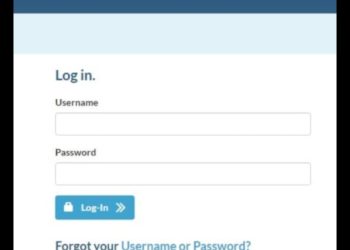In the current digital era, where cybercriminals may quickly steal and utilize personal information, credit card theft is becoming a major worry. Many victims of credit card fraud worry whether authorities genuinely look into these crimes and, if so, what happens during the investigation process. We will discuss credit card theft in this blog article and law enforcement’s role in preventing and punishing these crimes. We will also go through what people may do to safeguard themselves against credit card theft and what to do if they become a victim.

How Does Credit Card Theft Happen?
Credit card theft can happen through various channels and methods, and those who commit it are becoming more cunning in their methods. One approach is phishing scams, in which criminals send emails or build websites that mimic real ones and ask people for sensitive information, like their credit card numbers. They could also utilize social media, text messaging, or phone calls to get this information. Unaware victims may divulge their credit card information under the impression that they are working with a reputable business or organization while the fraudster is actually stealing the data.
Skimming is another way that credit cards are stolen. It is using tiny, covert devices to read data from a credit card’s magnetic stripe when swiped at a compromised payment terminal. These skimming devices may be installed by criminals on gas pumps, ATMs, or other payment terminals to steal credit card information from unaware victims.
Another prevalent type of credit card theft is called “card-not-present” fraud, in which the stolen data is used to make purchases online or in other situations where a physical card is not necessary. With the growth of e-commerce, this form of fraud has become increasingly common, and thieves may employ automated bots or other tools to make several fake purchases.
Credit card data can also be stolen due to data breaches and hacking attacks on businesses that maintain that information. Large amounts of financial and personal information, including credit card numbers, may be stolen by criminals from businesses like merchants, financial institutions, or healthcare providers. This data can subsequently be used to commit fraud or be sold on the black market.
Victims of credit card theft may incur large monetary losses in any of these situations, in addition, to harm to their credit reports. It is crucial to take precautions to safeguard personal and financial information, including routinely monitoring credit card activity, utilizing secure payment options, and reporting suspected fraud immediately.
Do Police Investigate Credit Card Theft? If So, How Do They Do It?
Police normally take several steps while looking into credit card theft, though these processes can change based on the particulars of the case. Here is a general description of how an investigation works:
- Reporting the Crime: Reporting a credit card theft to the police is the initial step in the inquiry. This can be done by phoning the neighborhood police department or the police department’s non-emergency line. Victims may also report theft to their bank or credit card companies.
- Information Gathering: Following the filing of a report, police will speak with the victim to learn more about the theft. This might include specifics regarding the stolen credit card, any erroneous purchases, and any unusual usage of the card. Additionally, the victim’s financial background and any potential suspects may be investigated by the police.
- Examining Evidence: Police will go into any physical evidence and any evidence connected to the theft, including any surveillance footage from ATMs or shops where the stolen card was used.
- Investigating Leads: Police will look into any leads they have regarding the theft, including potential suspects and anyone else who may have been involved in the fraudulent activities. If the theft included a sizable criminal operation, they might also collaborate with other law enforcement organizations like the FBI or Secret Service.
- Arrest: Police may make an arrest and gather evidence to support a criminal case if they can identify a suspect. The suspect could be subject to fines, jail time, or both if found guilty of the credit card theft accusation.
Challenges in Investigating Credit Card Theft:
Investigating credit card theft can be difficult for law enforcement organizations since these crimes frequently entail intricate, sophisticated strategies and various layers of fraud. The following are some of the main difficulties that detectives encounter:
Insufficient Cooperation:
The lack of cooperation from victims and financial institutions is one of the main obstacles in conducting credit card theft investigations. Victims can be unaware that their card has been used fraudulently or put off reporting the crime, making it more challenging for detectives to find suspects and get their hands on stolen money. Financial institutions could also hesitate to provide law enforcement with information due to privacy concerns or worries about how it might affect their company’s reputation.
Digital Nature of Evidence:
Digital evidence, such as emails, online purchases, and electronic records, is frequently used to prove credit card theft. Given that it calls for specific knowledge and equipment, this kind of evidence can be challenging to gather and analyze. To conceal their tracks, criminals may also employ cutting-edge encryption methods or anonymizing services, making it more difficult for investigators to identify the source of the theft.
International Jurisdiction:
Since credit card theft frequently occurs across international borders, it can be challenging for law authorities to find suspects and conduct investigations. It may be more difficult to freeze or recover stolen money if criminals utilize digital currencies or offshore bank accounts to shift it around. Extradition agreements and international cooperation may be required to bring suspects to justice, which might take time and money to set up.
Rapidly Growing Strategies:
To steal credit card information and avoid discovery, cybercriminals are always developing new strategies. To properly investigate and stop these crimes, law enforcement authorities must keep up with the most recent trends and methods in credit card fraud. Training and resources may need to be regularly updated to stay up with the evolving threat landscape.
How Is Credit Card Theft Punished?
Credit card theft is a serious offense that can result in harsh punishments. Depending on the jurisdiction and the seriousness of the offense, the particular punishment for credit card theft may vary, although it often consists of fines, jail, or both.
The Credit Card Fraud Act of 1984 made credit card theft a federal offense in the United States. Depending on the cost of the products or services that were taken, the number of victims, and other aggravating circumstances, the punishment for credit card theft can range from a few months to several years in jail. People who steal credit cards may also face civil penalties, such as lawsuits from victims seeking compensation and criminal penalties. Financial firms may also file lawsuits against those who use stolen or fraudulent credit cards.
It is essential for people to take precautions to protect their credit card information to avoid credit card theft and the consequences that go along with it.
How to Protect Yourself from Credit Card Theft?
Credit card theft is a serious problem that can cause a lot of financial loss. Thankfully, there are precautions you can take to safeguard yourself against credit card theft.
It’s crucial to protect your physical credit card from loss or theft. Never leave your card unattended in public spaces, and never lend it to anyone. Inform your card issuer right away if you lose your card. Use secure websites with a padlock icon in the address bar and “https” in the URL while making online purchases as well. This shows that the website is protecting your information with encryption.
Fraudsters frequently use phishing scams to get access to credit card data. Be wary of emails or texts asking for your credit card number, and avoid clicking on links or downloading attachments from senders you don’t know. One of the best safeguards against credit card theft is routinely checking your credit card bills for unauthorized payments or questionable activity. Inform your card issuer right once if you see any unusual behavior. Use solid, one-of-a-kind passwords for all your online accounts, including your credit card account. Never use the same password across other accounts, and avoid obvious choices like your name or birthdate.
Numerous card issuers provide fraud alerts, informing you of any suspicious activity on your account. Enable these notifications, and when you do, be sure to act quickly. You may help protect yourself from credit card theft and safeguard the security of your funds by paying attention to your credit card information and heeding these tips.
Let’s Wrap It Up:
Credit card theft is a widespread problem in today’s society that affects millions of people every year. Even though credit card theft can have serious repercussions, there are precautions people can take to safeguard themselves. People can dramatically lower their risk of becoming a victim of credit card theft by protecting their physical credit cards, utilizing secure websites, being watchful of phishing schemes, routinely monitoring statements, using strong passwords, and turning on fraud alerts. The peace of mind and financial security that come with protecting yourself are well worth the continual care and effort required to prevent credit card theft.
You may be interested in:
MultiversX (EGLD) Price Prediction













